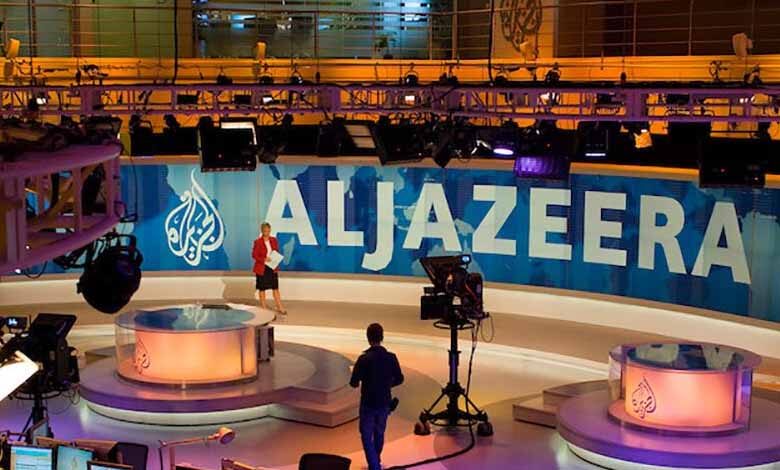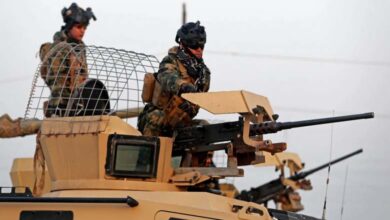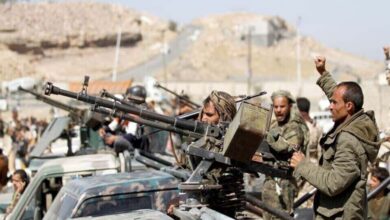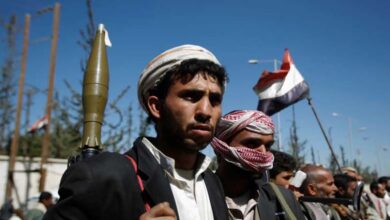Will Al Jazeera and its trumpets stop targeting the United Arab Emirates?
Why is Al-Jazeera and its trumpets targeting the UAE?

The continued targeting of the United Arab Emirates by Qatar’s Al Jazeera Channel, which Gulf politicians considered an indicator of Doha’s agenda to deal with the four boycotting countries according to different criteria, and away from the commitments made by Qatar towards confidence-building measures in the reconciliation agreement.
The sources said that Al-Jazeera’s continued attacks on the UAE and its role in Yemen in particular, strengthens the speculations about Qatar’s failure to change its behavior towards the main issues of disagreement, foremost of which is the Yemeni file, which the sources described as the most difficult test proving the seriousness of Doha in the Gulf reconciliation.
At a time when it does not seem to be determined to implement the first item, which requires it to stop incitement in its media channels such as Al-Jazeera, some of whose staff have not stopped offending the leaders of the four boycotting countries even while the Emir of Qatar Sheikh Tamim bin Hamad Al Thani was at the Al-Ula summit in Saudi Arabia, observers of the Gulf affairs questioned the possibility of Doha’s commitment to the essence of reconciliation, surprised by Al-Jazeera’s rebroadcast of its report distorting the UAE’s role in supporting the joint resistance forces on the west coast of Yemen and an attempt to show this role, which is part of the Saudi-led Arab coalition to counter the Iranian project, as having hidden objectives.
The Qatari channel’s broadcast of this program on its social media accounts, and then its deletion and rebroadcast reflect the state of confusion within the Qatar media system and its lack of understanding of the new transformations imposed by the Gulf reconciliation.
Observers did not rule out that this media escalation was intended to convey the message that Doha is not committed to changing its media rhetoric towards the boycott countries. Commenting on the Qatari media’s continued attack on the UAE, Kuwaiti political researcher and Chairman of the Gulf Forum for Security and Peace Fahad Al Shalimi pointed to what he called the great fall of Al Jazeera Channel just one day after the success of the 41 Gulf Summit in Al-Ula.
Al Jazeera is violating Al-Ula’s statement and the GCC’s statement through false and poisoned information, and the imported media channel is attacking the UAE’s role in liberating Yemen’s southern provinces, al-Shalimi said in a tweet.
Journalist Jamal al-Harbi wrote: We had hoped that the ink of the Al-Ula Agreement would dry up before Qatar put its media arm over us! In your opinion, is this the behavior of a state that wants to make peace?. While Qatar’s media machine stopped attacking Saudi Arabia after the warm welcome Sheik Tamim bin Hamad Al-Thani received from Saudi Crown Prince Mohammed bin Salman at the summit, the Qatari media discourse continued airing material targeting Egypt and the UAE.
Gulf sources did not rule out that Doha will work in the coming period to play a double role based on rapprochement with Riyadh, neutralizing Cairo, ignoring Manama and engaging in a unilateral confrontation with Abu Dhabi, in a policy aimed primarily at dismantling the Quartet Alliance that was able to besiege its subversive activities in the region. Doha seeks to appear victorious in its battle with the four boycotting countries, in the absence of any information on the nature of the commitments it has made.
Qatari officials denied that the closure of Al-Jazeera or any shift in relations with Turkey and Iran were among those commitments. Qatar’s Foreign Minister Sheik Mohammed bin Abdulrahman Al-Thani said in an interview with the Financial Times that his country will not change its relations with Iran and Turkey, and has not made concessions to anyone. He stressed that there will be no change regarding Al-Jazeera, which suggests that Qatar wants to take from the summit’s results only the gains, and that it will not put any controls or guarantees to cool the differences with the countries concerned. Political sources considered that the next few days will show the extent of Qatar’s commitment to the benefits of reconciliation, and its seriousness in stopping the political and media escalation and freezing its direct and indirect support for radical groups such as the Muslim Brotherhood and Houthi militias in Yemen. “Over the past years, Doha has dealt with the Yemeni issue unilaterally, away from the GCC’s vision, starting with Qatari mediation between the government and the Houthis in 2007 and the accompanying talk about its involvement in supporting the Houthis financially, logistically and in the media.”
Qatar withdrew from the Gulf Co-operation Council initiative, which allowed for the transfer of power in Yemen from former President Ali Abdullah Saleh to President Abdrabbo Mansour Hadi, amid reports that Qatar was supporting continued protests that threatened civil war. The Qatari role in Yemen escalated after the end of Doha’s participation in the coalition in 2017, as it worked according to Yemeni observers to create a split in the structure of legitimacy, and to turn the conflict compass to other anti-Houthi components. It also supported the establishment of Brotherhood-affiliated militias, in addition to its role in supporting the Houthis politically, financially, in the media, and logistically.












